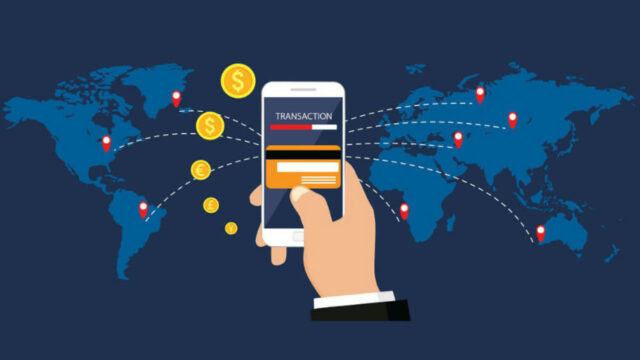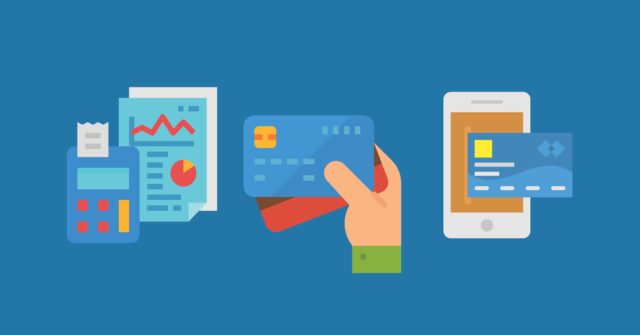
Blockchain is a decentralized database stored on numerous computers. Its decentralized nature makes the technology extremely secure because users cannot change or remove any blockchain entry. Considering the potential of blockchain, it has become a huge market and penetrated numerous industries, from finance to sports.
In 2025, banking was the industry with the largest blockchain spending, reaching almost 30% of the market share. When using blockchain, banks get a range of advantages, significantly improve the quality of provided services, and boost their revenues.
If you are searching for new solutions or experts (such as keyua.org) for your company and are interested in banking software development, we prepared an article about the benefits of blockchain in banking that may be of great use.
Blockchain and banking

The financial industry is one of the most vulnerable fields and requires improved protection. That is why blockchain may be one of the best solutions to ensure high security while eliminating fraud, lowering operational risks, and reducing administrative costs. Banks understand all the benefits this technology can bring, and more than 90% of US and European financial institutions have already started to explore the opportunities of blockchain. Below we will discuss the following advantages of blockchain in banking and finances:
- Speedy transactions
- Better security
- Lower costs
- Improved data quality
- Better error solving
- Accountability
- Protection of personal data and reduced fraud
- Higher transparency
- Simpler money transfers
- The appearance of new financial products
1. Speedy transactions

Assets in the blockchain network move by ledger entries, which makes transactions almost instant. Verification and processing of bank transfers may take several days, but new technologies can speed up the process from a few hours to several minutes. That is why using blockchain technology and banking software allows financial institutions to reduce the time needed for settling transfers. With the development of blockchain technology, transactions will become instant and will take place in real-time. Another use of blockchain technology in finance-cap table software like Astrella.com.
2. Better security
Another benefit of using blockchain for financial services is improved security. There is less time for hackers to access transaction data or to divert payments when transactions occur faster.
In some models, every operation has two keys: one is available to every user, and the other is shared only by participants of the transaction. The public one can be used to see a user’s balance and financial history but can’t be used to find out their identity. The private key can only be used during a single transaction. Thus, even if a hacker manages to take over the private key, they won’t be able to make a money transfer, which significantly improves the protection of funds and identity.
3. Lower costs

Using blockchain for banks can significantly reduce infrastructure costs. Smart blockchain contracts can lower financial expenditures on intermediaries and minimize maintenance and execution costs. Another advantage of this technology is that there won’t be a need for intermediaries when administering and processing bank-to-bank transactions. Blockchain facilitates quick and secure payments between two sides without a need for someone else’s interference.
4. Improved data quality
Blockchain can store any type of information and allow accessing it by following particular regulations and procedures. The technology uses smart contracts to automatically verify and complete a transaction, which improves the data quality and makes it resistant to any interference from the outside.
5. Better error solving

Irreversibility is a distinguishing feature of blockchain. Additionally, any recorded data leaves a comprehensive audit trail and can be monitored in real-time. This technology makes it easier to handle errors and coordinate with other market participants. If regulatory agencies and central banks also have access to the blockchain, it may be much easier to monitor the market and fix arising errors in a timely and accurate manner.
6. Accountability
Another advantage of using blockchain in the financial sector is that institutions may prevent misuse of their assets and all types of fraud. Blockchain makes transactions traceable and easy to verify, so banks can process and monitor transactions more efficiently.
With blockchain transactions, banks don’t have to worry about the fabrication of documents or paper errors. Money transfers are conducted digitally, and every entry is duplicated numerous times for better accountability.
7. Protection of personal data and reduced fraud

Blockchain can resist DDOS and hacking attacks, as well as other types of fraud. This technology can also help financial institutions and banks to identify users through a blockchain-powered ID. Besides, users have more control over the information they are willing to share. Less fraud, in turn, leads to reduced costs and the improvement of financial operations.
8. Higher transparency
Transparency is a term regularly associated with blockchain technology because the transactions are instantly recorded and can be traced by any user of the network. While transparency is a significant advantage, many users consider it a threat. That is why technology has introduced a variety of privacy measures, such as:
- Privacy-focused cryptocurrencies. For example, Monero and Dash.
- Zero-Knowledge Proof Technology. With its help, a user’s data can be verified without disclosing it.
- Confidential Transactions. This scheme is created based on homomorphic encryption and allows hiding transfer amounts.
- Enigma Secret Contracts. Enigma network and protocols allow encrypting data within a smart contract.
9. Simpler money transfers

Blockchain technology has changed the industry and can significantly simplify the process of sending money internationally. When sending money via the traditional way, businesses and consumers have to face delays, additional expenses, and bureaucracy. However, blockchain offers a simpler, faster, and cheaper way to conduct cross-border transactions, which is why more and more banks are partnering with crypto coins.
10. Appearance of new financial products
This technology is favorable not only for banks but for a variety of less obvious products and solutions. People are currently using blockchain to trade, borrow money, and fund local communities. For example, there are several crowdfunding products where people invest in a common fund and later borrow money. Some of them even have badges to create a trustworthy environment, leave reviews, and communicate.
Conclusion

Worldwide spending on blockchain is expected to reach $15.9 billion by 2025 compared to $1.5 billion in 2018. It indicates the popularity of this technology and its rapid growth. The advantages of blockchain discussed in this article allow banks and financial institutions to improve provided services and protect their customers’ identity and security.
When implementing blockchain and the latest banking software solutions in your product, you get a chance to reduce costs, improve safety, and gain a competitive advantage in the industry.












